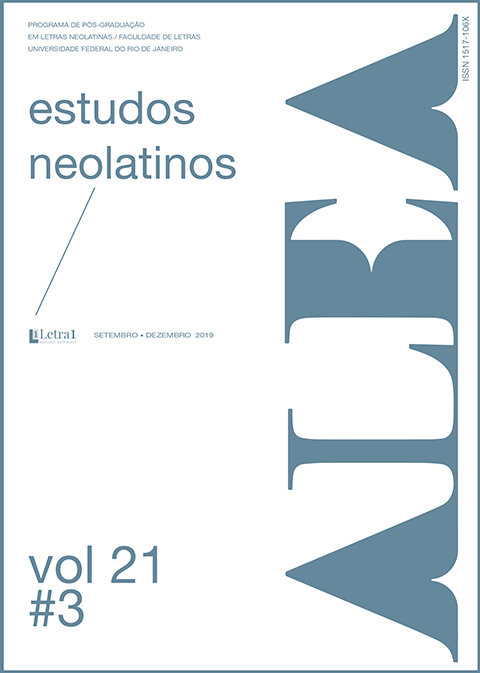Facebookland: the bizarro-linguistic world
Abstract
This article investigates the dynamics of contemporary Romanian, focusing on various linguistic structures typically used on social network sites, through which the specific content and interaction strategies are being deployed in virtual communities. The article is part of a larger project devoted to the study of linguistic impoverishment (affecting both the vocabulary and the grammatical structure of the language), social networks being only one of the areas where these “uglified” linguistic structures come from: the mass-media (both print and broadcast), advertising (outdoor, indoor, television commercials), Internet forums, corporate jargon, etc. The structures under scrutiny are mostly loan translations (i.e. calques) from English, false friends, hybrid constructions and, generally, lexical and grammatical oddities (sometimes even in the source language), which, nevertheless, due to frequent use, have entered the active vocabulary of a large category of speakers and are therefore becoming pervasive in everyday conversation. The proliferation of these ‘mongrel’ structures in common parlance is also the result of their migration, on the principle of communicating vessels, to other areas of interpersonal and public communication, that of advertising in particular. Moreover, their oddity and inappropriateness are now beginning to pass unnoticed, as more and more speakers are treating them as legitimate linguistic forms, which often end up being recorded in dictionaries. Our approach combines theoretical insights with practical solutions and the pragma-linguistic perspective with the translator’s corrective input.References
BĂLĂNESCU, Olga. TEXTE şi pre- TEXTE (Introducere în pragmatică), Bucureşti: Editura Ariadna ’98, 2001.
BARON, Naomi S. Always On: Language in an Online and Mobile World. Oxford: Oxford University Press, 2008.
COŞERIU, Eugen. Sincronie, diacronie şi istorie, Bucureşti: Editura Enciclopedică, 1997.
CRYSTAL, David. Language and the Internet. Cambridge: Cambridge University Press, 2001.
DICŢIONARUL explicativ al limbii române. 2nd. ed., rev., Bucureşti: Univers Enciclopedic Gold, 2016.
IORDAN, Iorgu; ROBU, Vladimir. Limba română contemporană, Bucureşti: Editura Didactică şi Pedagogică, 1978.
LENIHAN, Aoife. “Join Our Community of Translators: Language Ideologies and/ in Facebook”. In: THURLOW, Crispin; MROCZEK, Kathrine (eds.) Digital Discourse: Language in the New Media. Oxford: Oxford University Press, 2011, p. 48-61
MOESCHLER, Jacques, Reboul, Anne, Dicţionar encyclopedic de pragmatică, traducere şi prefaţă; Carmen Vlad şi Liana Pop. Cluj-Napoca: Echinox, 1999.
PLEŞU, Andrei. Limba păsărilor. Note pe marginea unui dialog platonician. Secolul v. XX, nr 1-2-3, p. 325-327, 1988.
SIMION, Eugen. “Prefaţa”. Dictionar Ortografic, Ortoepic si Morfologic al Limbii Romane, Editura Univers Enciclopedic, Bucureşti, 2007, p. i-xi
STANCU, Iulia, Diferit nu înseamnă inovator. Forbes România, June 11, 2014, accessed April 21, 2019.
ŞĂINEANU, Lazăr. Semasiologia limbii române. Timişoara: Editura de Vest, 1999.
ZAFIU, Rodica. Noua limbă a românilor. Lingvista Rodica Zafiu explică, la Interviurile Gândul, cum am ajuns să vorbim şi să înjurăm “ROMGLISH”. Gândul, March 1, 2015, accessed April 22, 2019.
Downloads
Published
Issue
Section
License
THE AUTHOR/S confirm/s his, her or their participation in all stages of work preparation: 1) Conception, project, bibliographical research, analysis and interpretation of data; 2) Writing and reviewing the manuscript; 3) Approval of the final version of the manuscript for publication; 4) Responsibility for all aspects of the work and guarantee for the accuracy and integrity of any part of the work. The submission of works implies the immediate cession, without onus, by all authors, of publication rights to the journal Alea, licensed under CC BY (https://creativecommons.org/licenses/by/4.0/). The authors are fully responsible for the content of the article and continue to hold all copyrights for subsequent publications of it, and should, if possible, include the reference to the first publication in the journal. Alea does not commit to returning received contributions. Authors of articles, reviews or translations will receive a copy of the journal.

